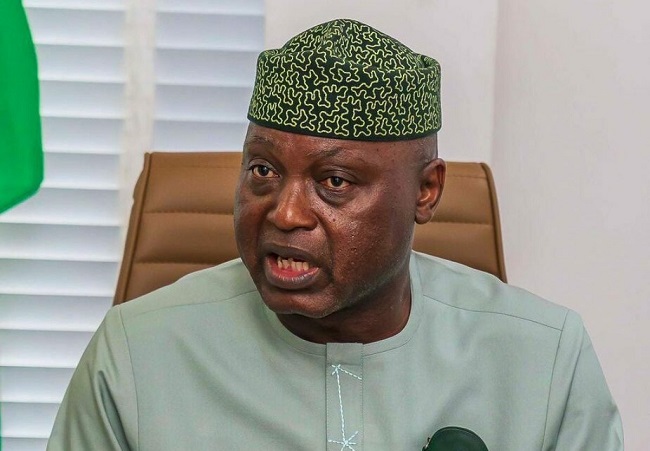The Ekiti State Government has disbursed the sum of N1.2 billion to primary, secondary, technical colleges, and other institutions as running grants for the 2024/2025 academic session.
The State Commissioner for Information, Taiwo Olatunbosun, who made this known in Ado-Ekiti, added that the State Government had expended N11,306,760,012.54 on the renovation and construction of facilities in all 203 public secondary schools under the World Bank-supported Adolescent Girls’ Initiative for Learning and Empowerment (AGILE) project.
He further stated that the government also paid N6.1 billion as a counterpart fund to the Universal Basic Education Commission (UBEC) for its 2022, 2023, and 2024 projects in the 927 public primary schools in the state.
The Commissioner noted that N16,388,047.77 was spent on the procurement of continuous assessment documents for public secondary schools, and N174,032,505.00 on instructional materials for primary schools, among other expenses.
ALSO READ: Police give update on Abuja River Park Estate dispute
Giving a breakdown of the disbursement of running grants since the inception of Governor Biodun Oyebanji’s administration, Olatunbosun said, “The 203 public secondary schools in the state received N214,479,000.00 for the 2022/2023 session, N235,157,400.00 for the 2023/2024 session, and N602,356,500.00 for the 2024/2025 session, while primary schools received N101,419,200.00 for 2022/2023, N109,854,900.00 in 2023/2024, and N381,258,000.00 for 2024/2025. Technical colleges received N6,774,300.00 in 2022/2023, N5,981,400.00 in 2023/2024, and N10,737,000.00 in 2024/2025.”
According to him, “The three Government Special Schools are paid N15,407,000.00 monthly as grants for feeding and maintenance, with facilities in the schools upgraded to ensure operational efficiency. Professional therapists, including physiotherapists, occupational therapists, and speech-language pathologists, have been engaged to provide remediation services for pupils and students with disabilities in the schools.”
He highlighted some of the government’s interventions in public secondary schools in the state to include the renovation of 1,135 classrooms and construction of 83 new ones, construction of 419 new toilets and renovation of 277 existing ones, drilling of 32 boreholes and rehabilitation of eight for improved water access.
Olatunbosun stated that the state also renovated, furnished, and equipped 18 libraries, 105 science laboratories, and 67 multi-purpose halls. Additionally, perimeter fencing was constructed in 46 schools, while 2,978 units of school furniture and learning materials were procured and distributed.
Stressing the need for all stakeholders to reciprocate and support the efforts of the Oyebanji administration to rapidly develop the state and provide access to inclusive, quality education in a conducive teaching and learning environment, Olatunbosun called on everyone to take responsibility for protecting public property in their respective areas to ensure proper maintenance and sustainability.
He reiterated the commitment of the present administration to the provision of free, quality, and compulsory education for school-age children in the state. He emphasized that the government had invested heavily in the education sector, and all parties must work together to protect that investment in order to genuinely achieve the desired goals.
The government spokesman said that protecting public property such as schools would enhance safety and well-being, noting that well-maintained public assets reduce hazards and contribute to a safer environment for residents. Conversely, neglected or damaged properties can pose risks and attract criminal activity.
He also cautioned principals and headteachers of public schools to shun corruption and any form of sharp practices, warning that it would be wrong for anyone to misrepresent issues under any guise to attract donations from individuals, groups, philanthropists, or associations without considering the unjustifiable effect on the government’s image.
He said, “All stakeholders, including residents, government bodies, and relevant organizations, share a fundamental responsibility to protect public property due to its importance for development and societal well-being. This protection can be achieved through awareness, education, and strict enforcement of regulations. Please, let’s be guided, as culprits will be made to face the full wrath of the law.”






